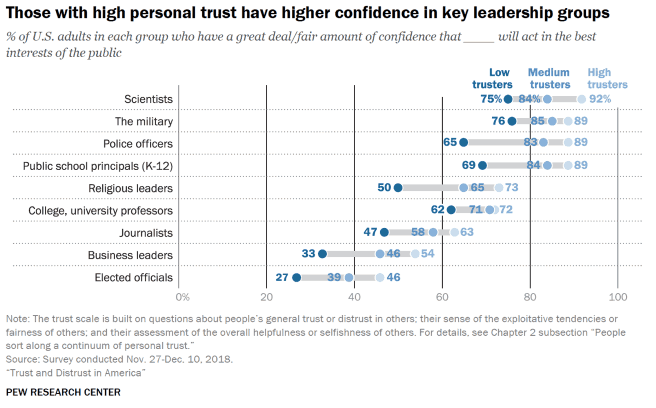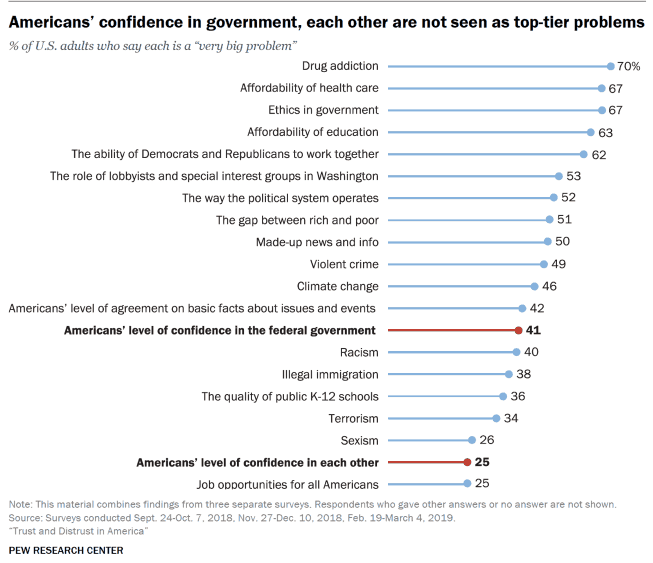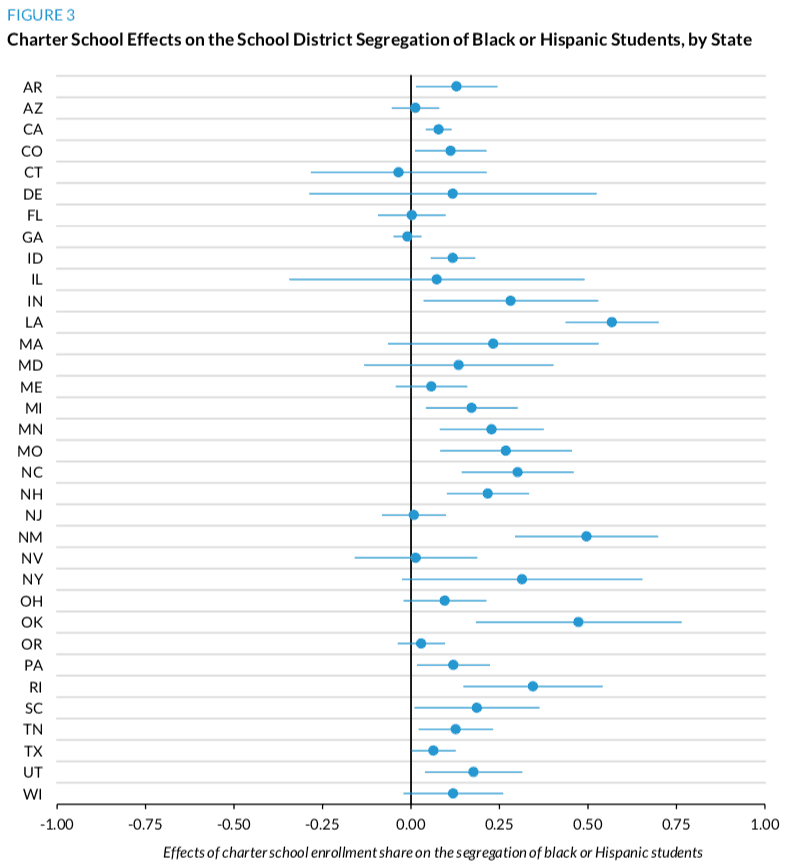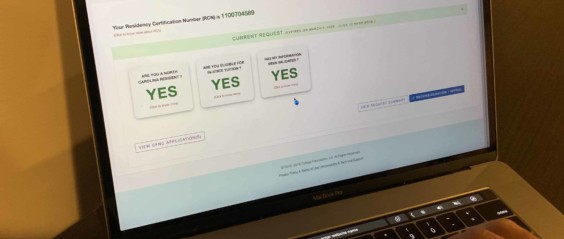Contextual Healing
On Monday, Pew Research Center released the results of a national survey of Americans’ views on a number of issues related to trust in government, their fellow citizens, and other institutions. Unsurprisingly, the results confirm Americans’ declining levels of trust in the federal government, but the report is not all bad news. Americans have the highest levels of trust in the military, scientists, K-12 school principals, and police officers contrasted with low levels of trust in elected officials and business leaders.

There is a partisan gap in trust, especially trust of the federal government, but there is also a significant age gap. Younger generations are much more skeptical than older generations. For example, only 35% of 18 to 29-year-olds are confident that Americans will respect the rights of those who are not like them compared to 67% of those 65 and older.
While Americans are worried about declining levels of trust, they do not list it among the most pressing problems Americans face. Instead, the top problems are drug addiction, affordability of health care, ethics in government, affordability of education, and the ability of Democrats and Republicans to work together. Read the rest of the report here.

Dropping Knowledge
A new working paper from Vanderbilt University researchers evaluating efforts to turn around low-performing schools in North Carolina found schools that participated in the turnaround effort actually had lower test scores and higher teacher turnover after two years than similar schools that did not participate. Under the Every Student Succeeds Act (ESSA), states have flexibility to develop their own strategies to turn around low-performing schools. In North Carolina’s model, 75 schools (largely rural) received coaching and support services from the Department of Public Instruction for two school years starting in the 2015-16 school year.
Researchers used a regression discontinuity design to measure the effect of the turnaround strategy and found that participation in the turnaround strategy had a negative effect on achievement (test scores) and teacher turnover. This research highlights how difficult school turnaround can be. North Carolina’s strategy was largely focused on increasing educator capacity through coaching, yet many of those teachers ended up leaving the schools. The researchers do note that school turnaround often takes longer than two years, but the increase in teacher turnover leads them to conclude their results will likely hold.
In the Weeds
The Urban Institute released the first national study on the effect of charter schools on segregation. Overall, they find that on average charter schools increase school segregation, but it’s a relatively small effect. According to the researchers, getting rid of charter schools in an average district would lead to a 5% decrease in segregation of black and Hispanic students. Segregation effects are largest in urban districts with higher shares of black and Hispanic students and also suburban districts with lower shares of black and Hispanic students.
The researchers are quick to point out that this average masks significant heterogeneity among districts and states. Additionally, they recognize that many charters were created to serve students from vulnerable populations and have improved student outcomes. In other words, there’s considerable nuance to these results. In the graph below, you can see that charters in North Carolina have a higher effect on segregation than many states.

Making News
The Facebook Journalism Project and The Lenfest Institute for Journalism announced the first round of community network grant recipients this week, and EducationNC is proud to be one of 23 organizations selected to receive the grant. Over the next six months, EdNC will be holding in-person and virtual community college student town halls to surface the issues students care most about and build our student engagement. Read more about the projects selected here.
What we're reading
Community College System hopes new law will ease recent application issues
A new law signed by Governor Roy Cooper on Friday amends the statute which governs in-state determination for tuition at North Carolina higher education institutions. ... Read the rest-
From Microbreweries To Biotech: In North Carolina, Business Calls
-
Why are Atlantic and Gulf coast property owners building back bigger after hurricanes?
-
The Link Between Pay-for-Performance and Depression
-
STEM talent exists in the South, but investment is appallingly lacking
-
5 Years Since Starbucks Offered to Help Baristas Attend College, How Many Have Graduated?
-
Getting Older, Going Broke: Who’s Going to Pay for Long-Term Care?


